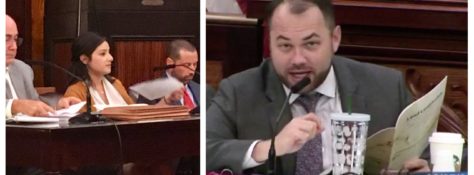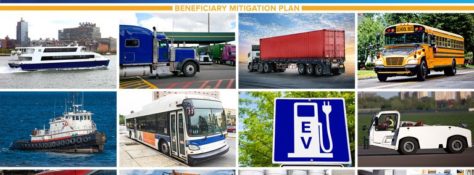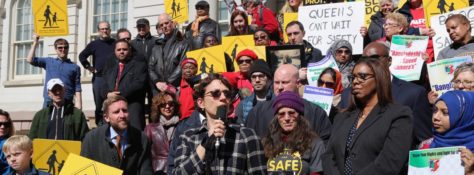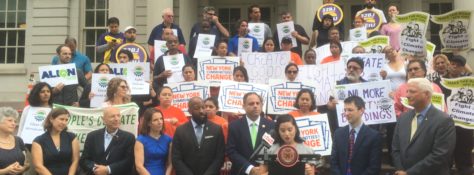News
The tunnels under the Hudson River, which are over 100 years old, are deteriorating and face the risk of closing permanently. Luckily, there is a solution: the Gateway Tunnel project. Recently, a coalition of civic, labor and business leaders, including NYLCV, formed the Build Gateway Now Coalition to advocate for and spread awareness of the importance of this project.
Learn MoreNews
The New York City Council held a hearing on lead poisoning prevention and to discuss a package of 25 new bills aimed at combating lead hazards. In our testimony we emphasized the need to optimize and streamline efforts to prevent childhood lead poisoning.
Learn MoreNews
Organic materials comprise about 30% of NYC's waste stream, which amounts to 1 million tons of waste. That’s why the NYC Department of Sanitation launched a voluntary composting pilot program. It expanded over the past few years to serve 3.5 million residents but expansion was recently paused.
Learn MoreNews
Governor Cuomo and DEC announced that the settlement funds will be invested in clean transportation including earmarking 40% for buses - a successful step forward in our Clean Buses for Healthy Niños advocacy campaign. DEC will prioritize these emissions reduction projects in environmental justice communities that have traditionally been overburdened by pollution, which leads to higher rates of asthma and other respiratory illnesses.
Learn MoreNews
This past July, New York City had to suspend its use of speed cameras after lawmakers in Albany were unable to renew the program. Governor Andrew Cuomo, Mayor de Blasio, and the New York City Council worked together and developed a solution to state lawmakers’ lack of support.
Learn MoreNews
A coalition of over 40 environmental, governmental, housing, labor, and real estate groups recently unveiled the Blueprint For Efficiency plan to mandate dramatic energy use cuts in New York City’s large buildings. In conjunction with the plans release, City Council Member Costa Constantinides announced plans to introduce legislation this fall that would reflect much of the plan’s recommendations. The plan and accompanying legislation come after two years of discussions and negotiations between the city administration, City Council, and stakeholder groups on how to address the biggest contributor to the city’s greenhouse gas emissions - buildings.
Learn MoreNews
You may already know about the recreational and environmental benefits of open green space. But do you know about the public safety benefits of greenspaces? A new study by the New York Restoration Project found a correlation between the creation of new green spaces and improvements in crime rates.
Learn MoreNews
It is crucial for policymakers to pass legislation to divert food waste from landfills, as only 3% of waste produced in the state does not end up at either a landfill or waste-to-energy facility. The Food Recovery and Recycling Act (that, unfortunately, did not pass) would have discouraged the production, distribution, and preparation of excess food; recovered excess food to be redistributed to those in need; and provided funding for new recycling programs specifically concerning food scraps.
Learn More



